New Internet Heartthrob Young Mazino Talks Asian-American Representation In 'Beef'
"With Beef, we’re not responding to who you think we are, we’re just showing you who we are."
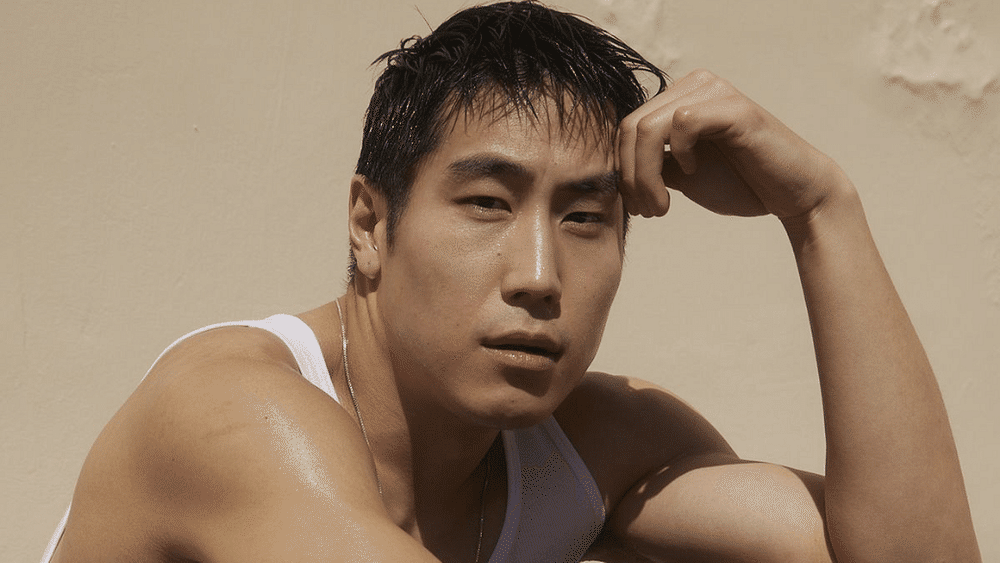
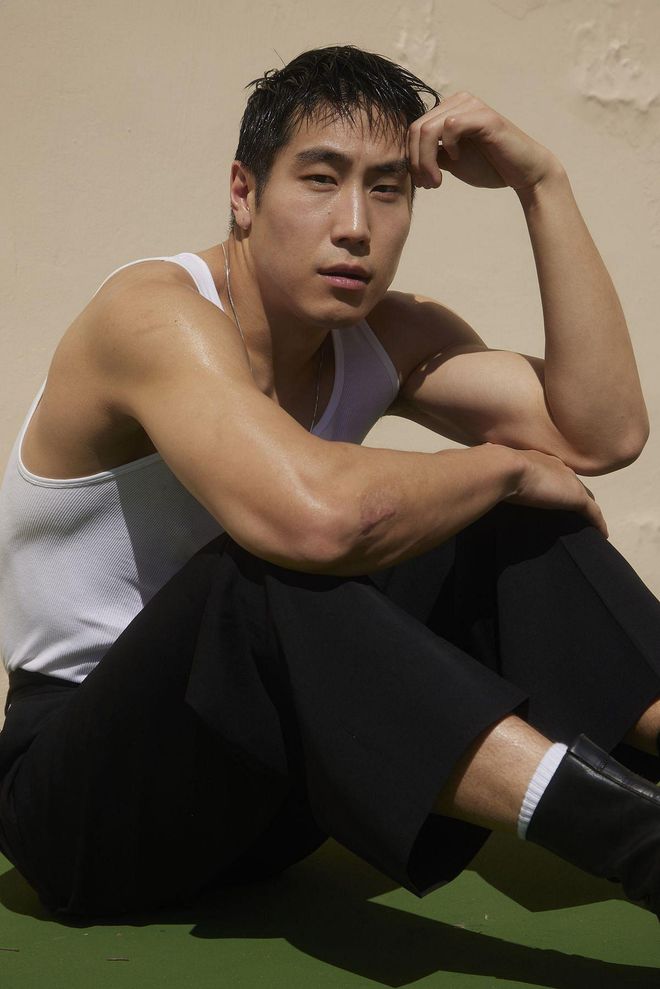
Photo: ALVIN KEAN WONG
Young Mazino
Young Mazino has seen your thirsty tweets about his body in Beef, the new Netflix dramedy from writer Lee Sung Jin about two strangers involved in a road-rage incident who take exacting revenge on each other to the nth degree. “I’m flattered by the response, because initially, I was looking for any critique on my performance, and there was one that I stumbled upon that I translated, that is just ridiculous,” Mazino tells BAZAAR.com over Zoom before proceeding to pull up a screenshot on his phone and reading a tweet so crude that it can’t be published in print.
Mazino has realized that such attention comes with the territory of being on a hit show. At 31 years old, the Maryland-raised, Korean-American actor is in the midst of a career-defining moment, endearing audiences with his portrayal of Paul Cho, a naively charming and well-meaning gamer and “crypto bro” who becomes collateral damage in the escalating blood feud between his lover, Amy Lau (Ali Wong), and older brother, Danny (Steven Yeun).
Related article: Will There Be A Season 2 Of ‘Beef’?
Below, Mazino—whose past guest-starring credits include Blue Bloods and Prodigal Son—discusses the evolution of Paul’s relationships with Danny and Amy, how he connected with his character’s sense of longing and aimlessness, and the thorny politics of Asian American representation.
You went for long walks on Venice Beach with Ali Wong to build the connection between your characters, who seem to connect on more of an emotional level than merely a physical one. Why do you think Paul and Amy are so drawn to each other, even after Amy reveals that she has been catfishing him as her employee?
I think they both gravitate towards each other in that they feel like somewhat of an anomaly in their groups. Amy, as a petite Asian American woman, is climbing through the jungle of entrepreneurship and about to embark on another massive journey and get her company bought by Forsters, so she’s an anomaly in her own right. Paul feels like a lost boy. He feels like no one understands him. He has this existential crisis, but he doesn’t have the wherewithal or the capacity to understand that and break out of that. But when they meet each other, I think that’s something so out of left field that it alters the trajectory of their lives.
You recently said that the bad things that Paul does in the show might not necessarily come out of malice, but rather out of feeling hurt. How did you want to play out the moments of uncomfortable growth that he experiences with Amy? Do you think he really loves her?
I think there’s no better or faster way to grow than through something as irrational as love, or what you think love is, but it also comes with a lot of growing pains. I don’t think the love that Paul thought existed was fake or illusory. I think it was way too massive for him to grasp, but he thought he could, and it ends with him asking her for money immediately after they had intense, passionate sex. That’s a huge red flag, if that ever happens to anyone.
I don’t think I’ve ever told anyone this, but at the time when I was contemplating moving to New York, there was a girl who I had a huge crush on, and of course, I never even really knew her. There was no real love; it was all in my mind. But I was like, “I think I could grow old with this girl. She’s so talented, so beautiful. She’s studying at NYU.” And me, as a college dropout, fantasized about ending up in New York. Back then, in my super naive mind, part of what gave me the courage to go to New York was [the idea that] maybe I could find love there. It was an escapist choice—I was running away from my circumstances, dropping out of college—but what was waiting for me was this delusion of love. I think Paul is someone in that same boat where he sees Amy as an escape, and even if he got catfished, he just swipes it all away and is like, “I love you, I want you,” to his own detriment. And I understand that wholeheartedly.
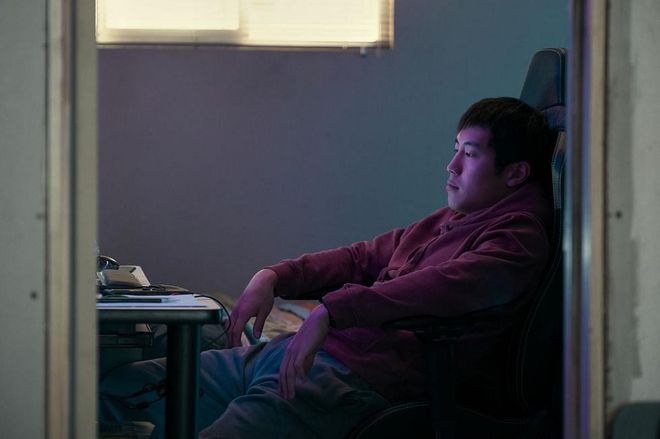
Young Mazino in BEEF. Photo: NETFLIX
Young Mazino in BEEF.
Paul’s encounters with Amy are the catalyst for him to reevaluate his life, step out of his brother’s shadow, and eventually spread his wings outside of the comforts of his family’s motel. You don’t think Paul can ever forgive Danny for throwing out his college admission papers, which certainly set him back in life, but how would you describe the state of their relationship by the end of the season? Do you think they could realistically chart a path forward in their relationship?
Paul would be some form of Sisyphus pushing the boulder up a hill in the underworld, and perhaps Danny is the reason why the boulder keeps coming down. I don’t think he’ll ever forgive Danny, but I think Paul’s done looking back and being held down, and I would hope that this is a catalyst for him to grow exponentially and realize these ideals and ambitions that he used to have before he just gave up.
I think that overshadows any kind of malice or ill-intent he has against Danny, and if anything, as he’s trying to grow and finally be his own man, perhaps he’ll come to understand that Danny is the product of a certain environment. As a first-born child, there is no buffer, especially when your [immigrant] parents are so busy just trying to survive, and then they end up going back to Korea. Nobody prepared Danny for this. Danny was a kid trying to figure his shit out, and suddenly he’s dumped with all this responsibility [while] trying to handle a damaged ego from all the toxic people around him who saw him as just that weird little Asian kid.
Related article: Steven Yeun And Ali Wong Will Star In A Netflix Series Together
So, when I look at that from an overarching storytelling perspective, there’s that path [forward] for Paul. I still have a lot of chips on my shoulder, but it’s overshadowed by me wanting to grow as an individual. That’s the non-toxic way. Paul has the opportunity to do that. I don’t know if he will, and he could also turn into like this terrible Andrew Tate type, like, “Man, fuck bitches, get money! Fuck family! It’s just me.” He could also turn into a monster too. So I’m excited to see what would happen, and it speaks volumes about the world-building that Sonny [creator Lee Sung Jin] has [done] with his team. These characters are still living their lives, and I feel like even without me, whether or not I return to Season 2, Paul was so well-created that it’s so easy to imagine where he is right now.
Where do you think Paul is now, if not dead?
He’s probably in the gym just getting even bigger.
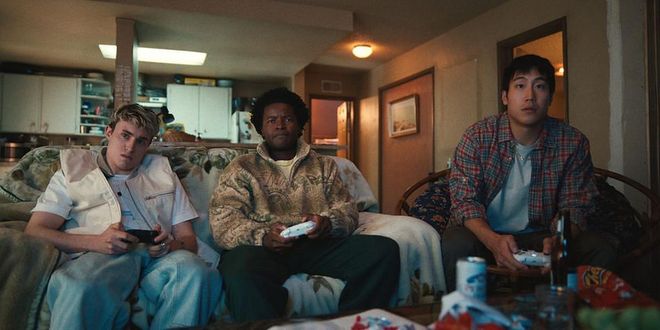
Photo: NETFLIX
Beef
How did you want to embody the physicality of Paul’s loneliness, and how did you want that to evolve over time?
In the first episode, when we meet Paul, he’s hunched over his computer just watching video games. He’s not good with eye contact, he mumbles under his breath, his energy has kind of imploded, and you see him struggling to break out of that. From some of the comments I read, people initially do not like Paul. They’re like, “Man, this guy is a piece of work. He’s wearing a gold chain while he’s still dependent on his brother.”
But then, in one of the later episodes, there’s a flashback showing Paul and Danny when they were younger, when Paul was in high school and trying to get into college, and he’s a different dude. He’s very bright, energetic and excited, because at that point, he has the world just waiting for him [to explore], and he’s trying to go to business school. Then, you realize there’s a reason why all of that went away, and what often happens when you hit a wall is you can regress and become stagnant. I tried to show a difference [between] who Paul was when he was younger and the person he is now.
I’m not sure how Paul would feel about the suggestion that Amy and Danny may have feelings for each other by the end of the season, though.
That level of betrayal is, like, “First you take my future, and then you take my girl!” Poor guy.
Hollywood has had a troubling history with Asian American representation, and even though there has been a considerable shift in recent years, actors and writers still have to strike a really fine balance when it comes to depicting flawed Asian characters who don’t fit the aspirational mold that many viewers have come to expect. What do you think Beef does particularly well when it comes to depicting a universal experience that just happens to feature Asian American characters?
I think Beef has lent a lot to shifting the paradigm. The way I see it is, around the early 1900s, film first became a thing. And in 1919, D.W. Griffith, this American filmmaker, came out with Broken Blossoms, which is also alternatively titled Molly and the Yellow Man. And the Yellow Man was not even played by an Asian actor; it’s played by a white guy in yellowface. He’s very meek and playing this servile thing, and that just speaks to the culture of that day and age, when there were a lot of people from the East migrating and facing a lot of oppression and hate. There was a scarcity mindset and everyone was looking for jobs.
You fast forward, and Asian people were in these films and in projects, but they’re more caricatures or one-dimensional figures of what people assume Asian people are. And then there’s a hard reaction to that by going, “We are crazy, rich, and beautiful,” and that’s empowering too, but that’s also perhaps a little too aggressive if you’re trying to shift the paradigm. But then now with Beef, we’re not responding to who you think we are; we’re just showing you who we are. And I think that’s a nice [change] of going from invisible to very visible. You see us in totality, in all our brutality, and you see the human condition that is just as prevalent in us, despite how rich or poor we can be. I think Beef is a great connector.
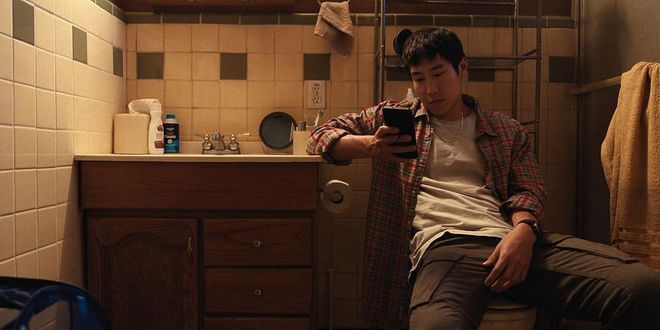
Photo: NETFLIX
Beef
What do you think is the next step in this larger conversation about Asian representation?
Going forward, I hope up-and-coming writers see Beef and use it as a standard and realize, “Damn, there’s good shit we can make out there.” Sonny came out of the trenches. They didn’t just give him a show like that. He climbed through his own ranks and went through his own battles and his own journey as a writer, and I hope that empowers young filmmakers to realize their voice matters, their stories matter, but it’s gotta be good. We can’t just give it to you because you’re Asian, so I think it has to be earned along the same racetrack.
Related article: Your Ultimate Guide To The ‘Wicked’ Movies
Do you think there is an obligation to hold Asian creatives in positions of power to the same standards, considering the discourse around the show on social media right now?
I don’t have anything in particular [to say]. But I just think about when I was in high school and middle school, there were a few Asian kids, and [they would stick together], but then there would always be a few Asian kids who were popular and spoke English well enough to be with the cool, non-Asian kids. There would always be a token Asian who's with the cool kids. When I think about that and what’s going on today in our culture and within the community, you gotta do what you gotta do. And I believe, beyond everything, that everyone has their own individuality.
I think that Sonny has captured the undertones of the voice of a community and perhaps the subconscious thoughts, and he’s presented it in such a fun way through Beef where, in some ways, it serves as a mirror and people can identify with multiple characters or one character. There are the Naomis of the world, there are the Amys and the Dannys and the Pauls and the Isaacs. And I think that’s the core of storytelling—I think it’s to reveal the light that you illuminate in a cave. But people gotta do what people gotta do.
This interview has been edited and condensed for length and clarity. Beef is now streaming on Netflix.
This article originally appeared in Harper’s BAZAAR US.